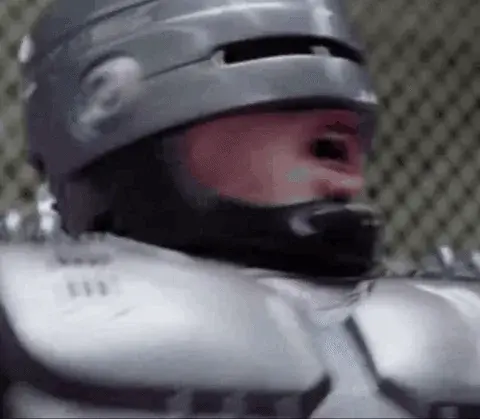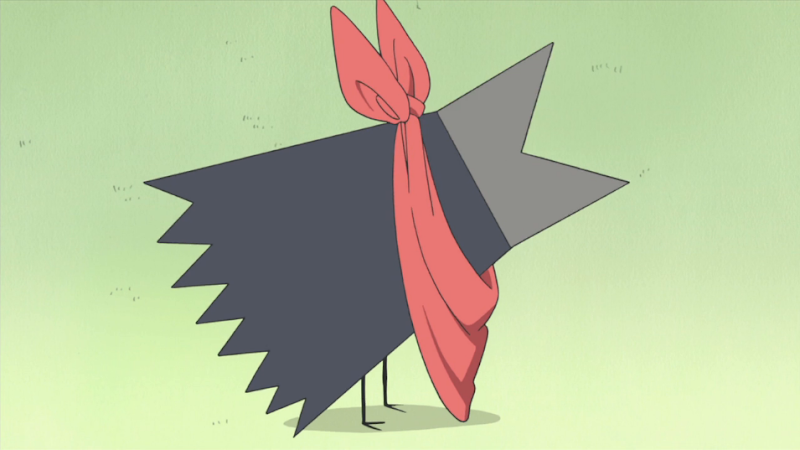Edit to say - I’m really glad I asked my stupid question. I was so jaded by the con artists in recycling I forgot that when done right there’s so much good - and still loads of consequences to not finding a place to reuse the paper products. I’m not huge with using packaging - and thanks for all the thoughtful answers :))
I found myself wondering this as I got annoyed at the plastics industry and their stupid propaganda, as I do everytime I go to recycle something. But anyway, I had been thinking I’d heard something about people going to ‘mine’ landfills for metal because people weren’t recycling and it’s ‘bad for the environment’ and 'filling up ‘landfills’
Bitch Please. I can see the dollar symbols on your pupils from here.
So it made me think, paper and the such breaks down quickly. Food too. The huge drives for community composting efforts and cardboard drives for schools etc - It’s really all a matter of the fact we can re-use it all easily. Metal is worth money, used again and again, as it was straight from the earth. Just that plastic. Which is all but unrecyclable, save some clear/semi-clear containers.
But without the cardboard, my bin is pretty empty. It’s like recycling exists just to pretend plastic can be.
Edit - I should add in my area if the recycling the plant receives is tainted in anyway they just toss it. The whole load. So unrecyclable plastic? Dirty? Wrong material? Gone.
Cardboard is the most recyclable material we have. Plastic is complicated.
Better than recycling is to not consume in the first place.
reduce, reuse, recycle… what’s lost is that this is not alternatives, but an order
first try to reduce usage then try to reuse what you do use then try to recycle when possible
Oh for sure, anti-consumption is always important to remind. The packaging is out of control…and what paper does in terms of pollution - well I’ve simply had to come to terms I can’t control these garbage bags at the top, I can only control myself and do my best.
One thing I have found that I love is land-fill biodegradable bags for my customers. Paper, as meantioned, makes me wary, so when I found these I was pretty happy. They seem legit and they’re inexpensive
land-fill biodegradable bags
Just be careful with those. Some are really biodegradable and will be gone after a while. Others only degrade until they become entirely microplastics and stop there.
Thank you - I knew there would be more pieces to investigate but I wasn’t sure what questions to ask - based on the price ($.07 each) I thought they might be a little too good to be true…I’ll see if they still hold up!
$.07 each
That’s actually a bit expensive. What of course still doesn’t tell you it’s good. But there’s no reason to be suspicious of hat price.
Well other plastic bags are .03 - or the produce bags without handles are - I’ve shopped around, but primarily on Amazon since I have Prime, and the shipping costs elsewhere kill me
It’s so effing hard to be ‘good’
By what metric? Fibers breakdown during recycling in ways glass or steel do not.
Better than recycling is to not consume in the first place.
Well at that extreme it’s even better to simply not exist.
No, there are several levels of nuance between your extreme and OPs suggestion. Reducing consumption would be the most obvious one.
What you’re posing as a counterpoint to potentially not being able to recycle paper products, we should automatically go straight to cutting down more trees.
Imagine making paper on your own property. You have two trees. You cut down one tree, plant a replacement, and make 100,000 sheers of paper product. When you’re done with a sheet, throw it in your yard. It’s composting, right? Sure. You’ve made no efforts to recycle clean paper. When your 100,000 sheets run out (printer paper, note paper, toilet paper, and paper towels), you have to go cut down the second tree. How big is that replacement tree? Is it going to ready 100,000 sheets later? Will it get struck by lightning, caught in a wildfire, hit by a car, or catch a disease? You’d hope not. So wouldn’t it make more sense that, even though you’re planning to replant trees, to recycle as much paper as you could? You wouldn’t have a yard full of composting paper and you wouldn’t have such a close dependency on your two tree plots. No, this isn’t solved by having a whole forest available when you scale up the consumer side too.
Now consider that an average American consumes 7 trees per year and a tree takes at least 20 years to mature for processing. That’s 140 trees growing simultaneously to support one person.
So no, we can’t just blindly throw all our paper in a landfill and ignore the impact. Why so many places do single stream with tuna oil soaked into paper, I don’t know. I get the frustration.
Metal isn’t so clean either. Every time it gets processed, more and more is lost to oxidation and to contamination during smelting. Sure, it’s more easily recovered from the single stream can, but I’m not a fan of metal newspapers
No, this isn’t solved by having a whole forest available when you scale up the consumer side too.
You’re seriously underestimating how many trees there are. The only reason we’re losing forest is because of grazing land. That’s clearcutting, where you remove the tree and just destroy it or just burn the whole forest. As a vegetarian I’m obviously not here to defend grazing land, but if you look only at wood and paper production, we absolutely can replace the trees we use with enough time for them to regrow completely.
Doing so devastates ecosystems by turning them into monocultures, but you’re only talking about the replacement rate of trees. We don’t have to worry about the replacement rate of trees, we have to worry about greed for land and environmental impact.
You cannot make paper out of all wood.
Additionally, the process to remove lignin, a binding protein, from wood in order to make paper is extraordinarily environmentally destructive. Paper mills do not smell good and are toxic waste sites for a reason
Yes, I know all that. The argument I was replying to was that you run out of trees if you use them to make paper without recycling. That argument is false. You’re arguing with points I didn’t make.
That was my take away with what they were saying in a broad sense - making more and more and more paper is unsustainable not matter what. Reforestation is still hard on the creatures dependent on the original environment…monoculture destroys economies (only for poor people, obviously) - in the end, no matter what, creating new paper products on a whim is selfish, greedy and avoidable
I figured you’d extrapolate and consider the damage caused by needing so many trees every year, not just the simple math of needing too many trees.
and i figured you’d read what i actually wrote instead of arguing with someone who didn’t exist
Clean paper and cardboard are easily recyclable and worth money. I first figured this out over 30 years ago while taking commuter trains into NYC.
There were approximately one yard cubed wagons left on the platform to discard your already read newspapers for recycling. Local hustlers would often reassemble the papers and sell for half.
At some point locking tops eere put on so it was difficult to remove the papers. This was because the agency collecting the old newspaper was making money from it.
Fast forward. Some cities make it a crime to rummage through the recycling bins.
There is money there.
Uhhh what? I always thought those bins were to stop people from sharing papers and forcing everyone to buy a fresh copy
I was there when it started.
You were where when it started?
Grand Central Terminal in New York City.
You worked there and were part of the decision making process? Or you saw the exact same thing I did and came to a different conclusion?
I read there reasoning and believed it.
https://www.nytimes.com/2001/08/19/nyregion/new-recycle-bins-stop-a-long-habit.html
That article says, explicitly, that they did it to stop people from getting free papers and to kill the secondary market. It’s a completely profit-driven artificial scarcity move that has nothing to do with recycling.
If you can, paper and cardboard are compostable at home, help put that carbon back in the ground and grow more carbon scrubbing plants
I do!
I don’t know much but I’ve heard that landfills are so dense and thick that there is not enough oxygen to break down organic matter like did waste. I don’t know for sure about that and I don’t know how it applies to cardboard but that’s what I’ve heard and read and seen videos about.
I hope someone with more knowledge could give a better informed comment.
RemindMe! 2 days
Did your remind me work? I think you need @remindme@mstd.social 2 days
From what I’ve watched and read you are correct. It also creates excess methane which is captured and sometimes used for things like energy.
Wait, hold the fuck up, do we have the RemindMe bot here now?
I never even considered that in the first place, so thanks for speaking up anyway:)
I wonder if that has anything to do with the methane torches that burn from the landfills
A quick search found this small page that summarizes what you said
I compost at home, and I “toss” my pile at least weekly to get more oxygen in the pile and accelerate the breakdown of greens and browns into compost. As I understand it, everything in my pile would EVENTUALLY break down if just piled up, but composting is done semi specifically to take advantage of prime conditions for the breakdown process. All that to say, it definitely doesn’t breakdown as quickly/effectively in a landfill due to lack of oxygen
I think a lot of waste management is very local, so the answer might be different for you than it is for me.
In my town, there is a box factory that gobbles up all of our paper products and turns them into new boxes. So I know that putting the cardboard in my recycling bin is worthwhile.
Here’s the hierarchy of recycling.
- aluminum cans, recycle at pretty much any cost. Recycling aluminum is so much cheaper than smelting new aluminum, companies will happily pay you for aluminum.
- corrugated cardboard, recycle if it didn’t touch food, it’s a bit overly restrictive, but contaminated cardboard causes lots of cardboard to be thrown away. Cardboard is super recyclable and profitable for companies. Ideally cardboard used with food goes to industrial composting.
- other paper products that are recyclable, it’s generally down cycled, but still a pretty good deal.
- glass, only if it’s perfectly clean or trivial to clean it. When in doubt toss it. Glass doesn’t recycle well because it’s more difficult to process into new glass, also color have their own chemicals that don’t mix for recycling. Glass is better for a reuse target as recycling is at best breaking even economically.
- plastic, put it in the trash. Maybe if you are next to a recycling bin and the plastic is perfectly clean then recycle, but even then trash is probably better. Developed countries waste management systems will keep that plastic out of the water and it won’t contaminate other materials.
There are some countries where you can reclaim a few cents if you return your plastic PET bootles on a specialized container.
On this particular case, since the plastic isn’t mixed with other incompatible plastics, the recyclability is actually really good, as good as paper/cardboard.
sources? I want to read more
This is awesome thank you
There’s this idea that things will just “break down” in the garbage but in reality past a certain point in the landfill heap, there’s too little oxygen to fuel decomposition. And that point keeps rising…
Maybe part of the issue is the plastic bag that usually surround the biodegradable stuff?






